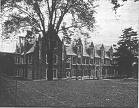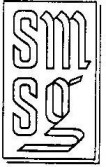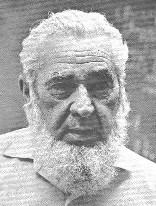 The website is in construction. New files will be uploaded as soon as they are available.
The website is in construction. New files will be uploaded as soon as they are available.
EDWARD GRIFFITH BEGLE
Saginaw, Michigan 1914 - Palo Alto, California 1978

- Brief scientific biography
- Contributions to Education
- Relevant bibliography
- Publications on the teaching of mathematics
Brief scientific biography
Edward Griffith Begle was born in Saginaw, Michigan, on 27 November 1914. He attended the University of Michigan, where he studied under the topologist Raymond L. Wilder, who had been the first doctoral student at the University of Texas of Robert Lee Moore, the founder of topology in the United States and the inventor of the Moore method for teaching mathematical proof. Begle received his A.B. in mathematics from Michigan in 1936 and his M.A. in 1937. Not surprisingly, given that Wilder was his mentor, Begle pursued the study of topology, going to Princeton University, where he obtained his Ph.D. in 1940 under the direction of Solomon Lefschetz. Begle's dissertation was on locally connected spaces and generalized manifolds.

Fine Hall, Princeton University

Leet Oliver Memorial Hall,
Yale University
Yale University
In 1951, Begle was elected secretary of the American Mathematical Society, a position that brought him into the mainstream of the American mathematics community. He held the position for 6 years during a time when the AMS was coping with problems brought on by the postwar expansion of interest and activity in mathematics. Concern over the increased need for mathematicians led in 1958 to two conferences sponsored by the National Science Foundation, both of which called for a project to revamp the school mathematics curriculum.

Stanford University Quad,
Math Corner
Math Corner
In 1961, SMSG moved from Yale to Stanford University, where Begle was given a joint appointment as professor in the Department of Mathematics and the School of Education. Ultimately, however, his appointment was shifted entirely to the School of Education, a move that reflected his growing interest in educational topics such as curriculum development and evaluation, teacher education, and research in mathematics education. He remained on the Stanford faculty until his death from emphysema on 2 March 1978. He was survived by his wife, six of his seven children, and seven grandchildren.
During his career, Begle was active in the National Council of Teachers of Mathematics, serving on its Board of Directors, Finance Committee, and Research Advisory Committee. He was a member of the Committee on the Undergraduate Program of the Mathematical Association of America, chairman of the Conference Board of the Mathematical Sciences, and trustee of the American Mathematical Society. In 1960, he was elected a fellow of the American Association for the Advancement of Science. In 1969, he received the Distinguished Service Award of the Mathematical Association of America, and in 1971, he received the Rosenberger Medal from the University of Chicago for his significant contributions to humanity.
Begle served two terms on the United States Commission on Mathematical Instruction, from 1962 to 1966 and from 1970 to 1975. He chaired the commission from 1963 to 1966. He served on the Executive Committee of the International Commission on Mathematical Instruction from 1975 to 1978.
Contributions to education

"Since no one can predict with certainty his future profession, much less foretell which mathematical skills will be required in the future by a given profession, it is important that mathematics be so taught that students will be able in later life to learn the new mathematical skills which the future will surely demand of many of them". (quoted in BEGLE, 1968, 239)SMSG prepared sample textbooks, including teachers editions, for all the grades from kindergarten to Grade 12. These textbooks included versions for some alternative courses such as an elementary algebra course to be given in 2 years instead of 1 and a coordinate geometry course to contrast with the more Euclidean version. Some of the textbooks were also published in Spanish editions. SMSG published and distributed extensive collections of books and films for teachers as well as a series of monographs for students, the New Mathematical Library.
Begle's 1969 address at the First International Congress on Mathematics Education in Lyon,

"I see little hope for any further substantial improvements in mathematics education until we turn mathematics education into an experimental science. . . . We need to start with extensive, careful, empirical observations of mathematics learning. Any regularities noted in these observations will lead to the formulation of hypotheses. These hypotheses can then be checked against further observations, and refined and sharpened, and so on. To slight either the empirical observations or the theory building would be folly. They must be intertwined at all times". (BEGLE, 1969, 242)After conducting the National Longitudinal Study of Mathematical Abilities— the largest study of factors affecting the learning of mathematics— Begle began a series of teaching units so that they could conduct studies in which a single dimension of instruction was varied and its effects measured. A posthumously published book (BEGLE, 1979) contains his review of the research on many facets of mathematics education.
Relevant bibliography
E. G. BEGLE 1942, Locally connected spaces and generalized manifolds, American Journal of Mathematics, 64, 386-387.
E. G. BEGLE 1950, The Vietoris mapping theorem for bicompact spaces, Annals of Mathematics, 51, 534-543.
E. G. BEGLE 1954, Introductory calculus, with analytic geometry. New York: Holt, Rinehart & Winston.
E. G. BEGLE 1969, The role of research in the improvement of mathematics education. Educational Studies in Mathematics, 2, 232-244.
E. G. BEGLE 1972, The prediction of mathematics achievement (NSLMA Reports No. 27). Stanford, CA: School Mathematics Study Group.
E. G. BEGLE 1979, Critical variables in mathematics education: Findings from a survey of the empirical literature. Washington, DC: Mathematical Association of America and National Council of Teachers of Mathematics.
B. DEMOTT 1962 (Spring), The math wars, American Scholar, 296-310. Reprinted in R. W. HEATH (Ed.), New curricula (pp. 54-67). New York: Harper & Row, 1964.
G. GOODMAN JR. 1978 (March 3), Prof. Edward G. Begle, chief proponent of 'new math' , The New York Times, p. B2.
A guide to the School Mathematics Study Group Records, 1958-1977. (n.d.). Retrieved from the Texas Archival Resources Online Web site:
http://www.lib.utexas.edu/taro/utcah/00284/cah-00284.html
W. J. IVERSON, E. W. EISNER, & R. G. GROss 1978, Memorial resolution: Edward G. Begle, 1914-1978. Retrieved from the Stanford Historical Society Web site: http://histsoc.stanford.edu/pdfmem/BegleE.pdf
B. J. PETTIS 1969, Award for Distinguished Service to Professor Edward Griffith Begle, American Mathematical Monthly, 76, 1-2.
W. WOOTEN 1965, SMSG: The making of a curriculum. New Haven, CT: Yale University Press.
M. ZELINKA 1978, Edward Griffith Begle, American Mathematical Monthly, 85, 629-631.
Publications on the teaching of mathematics
E. G. BEGLE 1958, The School Mathematics Study Group, Mathematics Teacher, 51, 616-618.
E. G. BEGLE 1961, Comments on a note on "variable" , Mathematics Teacher, 54, 173-174.
E. G. BEGLE 1962, Remarks on the memorandum "On the mathematics curriculum of the high school" , American Mathematical Monthly, 69, 425-426; Mathematics Teacher, 55, 74-75.
E. G. BEGLE 1968, SMSG: The first decade, Mathematics Teacher, 61, 239-245.
E. G. BEGLE (Ed.) 1970, Mathematics education (69th Yearbook of the National Society for the Study of Education, Part 1). Chicago: University of Chicago Press.
E. G. BEGLE 1971, SMSG: Where we are today, In E. W. Eisner (Ed.), Confronting curriculum reform (pp. 68-82). Boston: Little, Brown.
E. G. BEGLE 1971, Time devoted to instruction and student achievement, Educational Studies in Mathematics, 4, 220-224.
E. G. BEGLE 1973, Some lessons learned by SMSG, Mathematics Teacher, 66, 207-214.
E. G. BEGLE 1975, Basic skills in mathematics, In The NIE Conference on Basic Mathematical Skills and Learning: Vol. 1. Contributed position papers (pp. 13-18). Washington, DC: National Institute of Education.
E. G. BEGLE 1975, The mathematics of the elementary school. New York: McGraw-Hill.
Author
Jeremy Kilpatrick
University of Georgia
jkilpat@uga.edu
